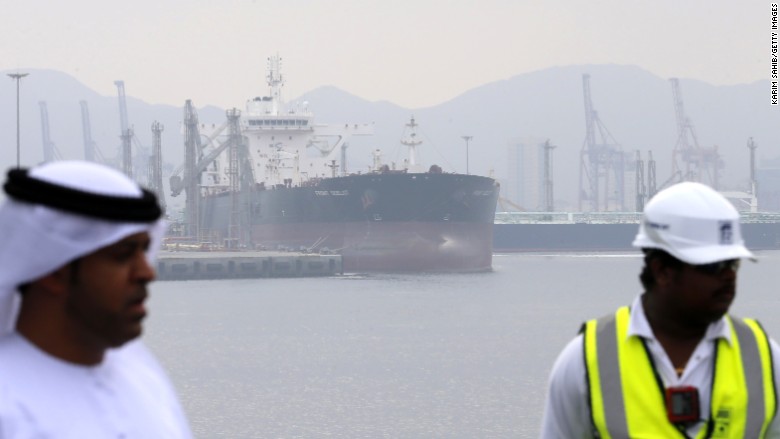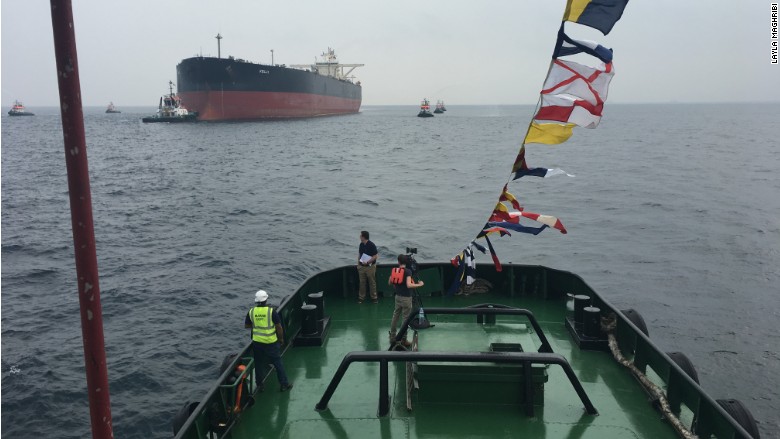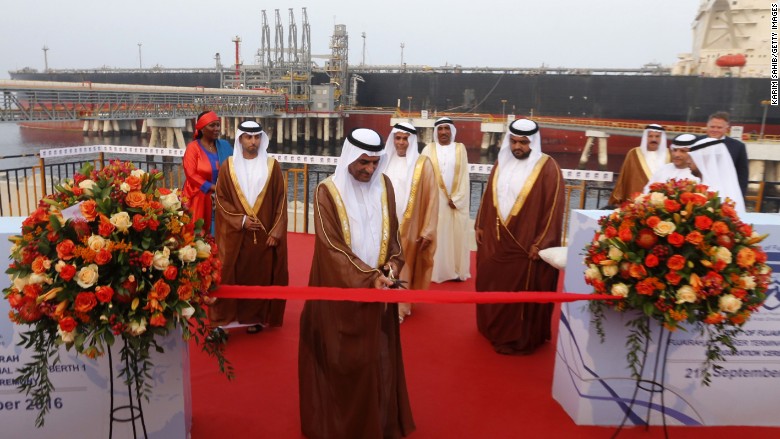
Oil producers have been slashing investment by hundreds of billions of dollars in the past year or two. Not here.
From my vantage point on a small tug boat in the Gulf of Oman, I watched last week as "The Kelly" -- a super tanker with a capacity of two million barrels -- docked at a new terminal at Fujairah in the United Arab Emirates.
The inauguration of the terminal, which can hold more oil than the U.K. uses on a daily basis, is the latest phase of a $5.5 billion investment to build a Middle East storage and export facility to rival Rotterdam and Singapore.
Fujairah began hatching its plan as far back as 1991, when the Gulf War left lines of tankers stranded outside port, unable to travel north through the Strait of Hormuz.
Most of the investment in the facility -- government and private sector money -- was committed during the heady days of $100 a barrel oil.

The United Arab Emirates completed a 370 kilometer (230 mile) pipeline from their onshore fields in Abu Dhabi to the port in 2012. It can now store up to 60 million barrels of crude, equal to six days of Saudi Arabia's production, or about two-thirds of daily global demand.
But Fujairah isn't done yet.
Port officials said they will add enough capacity over the next two years to rival Singapore, Asia's oil hub.
UAE Minister of Energy Suhail Al Mazroui told CNNMoney that there is a commitment from local officials and the federal government to keep on expanding despite the slump in oil prices since 2014.
"We're looking to compete internationally," said Al Mazroui. "I think we could be at the top as we want to build a second terminal," to handle super tankers, or very large crude carriers in industry parlance.

This is the UAE doubling down on their bets to secure market share for their crude oil. Customers value security of supply, ease of shipping and lower insurance costs -- all things Fujairah can offer.
"I think the capacity to bring this kind of vessel fully laden, this is going to be the deepest port in the Middle East, gives yet another dimension to this growing storage hub," said Christopher Bake, a member of the executive committee of Vitol, one of the world's largest energy traders.
Location is also a huge advantage. The region is home to two-thirds of the world's proven energy reserves.
And the port allows oil to bypass the Strait of Hormuz, a critical artery handling about 30% of the oil shipped globally on a daily basis. The strait connects the Persian Gulf with the rest of the world. Iran sits on one side of the strait, where there have recently been a series of tense encounters between U.S. and Iranian vessels.
According to executives at two storage facilities, onshore tanks in Fujairah are running at full capacity. As a result, super tankers like "The Kelly" are being used to store crude at sea. With the launch of the new terminal and the ability to moor up to 160 tankers, they can do so right in the heart of the world's oil belt.

No comments:
Post a Comment